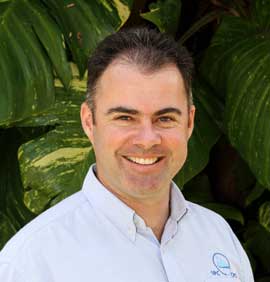Biodiversity, Climate Change, Combating Desertification and Drought, Conferences, Development & Aid, Environment, Featured, Global, Headlines, Health, Natural Resources, Poverty & SDGs, TerraViva United Nations
Cameron Diver is Deputy Director-General, the Pacific Community (SPC)
– In less than 10 days, countries from around the planet will come together in New York for the United Nations Secretary General’s Climate Action Summit. I look forward to representing the Pacific Community (SPC) at this important event, and throughout “Action Week” during the upcoming UN General Assembly.

Cameron Diver
The interconnections and synergies between major issues of global concern and the key role multilateralism and international cooperation can play in helping tackle these challenges are illustrated by the agenda of the week from 23 to 27 September. Underpinned by the Sustainable Development Goals, each of the high-level summits will focus on commitments to accelerate action across climate change, enhance efforts to secure healthy, peaceful and prosperous lives for all, mobilise sufficient financing to realise the 2030 Agenda and address the specific issues and vulnerabilities of small island developing states.
The week of summits kicks off with a focus on climate action. And this is, in my mind, highly appropriate. The multiplier effect of climate change undermines our efforts to achieve the sustainable development goals, it increases the challenges of biodiversity conservation and sustainable use, it intensifies competition and the potential for conflict around natural resources and it poses the single greatest existential threat to the lives and livelihoods of millions of people around the globe. From where I stand, the science on climate change is clear. To take only these examples, the IPCC Special Reports on the impacts of global warming of 1.5° above pre-industrial levels and climate change, desertification, land degradation, sustainable land management, food security and greenhouse gas fluxes in terrestrial ecosystems provide us with the most robust, high quality evidence base to understand the significant negative impact climate change is already having on our natural environment, on the wellbeing of people, ecosystems, flora and fauna and the massive and potentially irreversible consequences of inaction. As regards our ocean, the upcoming Special Report on the Ocean and Cryosphere in a Changing Climate is likely to confirm what the islands of the Blue Pacific continent, and others whose cultures, traditions and livelihoods are deeply attached to the ocean, have already sensed: the climate crisis is a real and present threat to ocean and coastal ecosystems and the human communities that depend on them.
The stakes are high, but where there is a threat there is also an opportunity. If we act now, there is still have time effectively to tackle the climate crisis! To put it simply: ambition without action is insufficient and simply not an option. SPC is committed to working with our Member States, international and regional partners to translate climate ambition into tangible climate action, for both mitigation and adaptation. The benefits could be huge, with the Global Commission on Adaptation estimating that investing $1.8 trillion in climate adaptation globally in just five areas from 2020 to 2030 could generate $7.1 trillion in total net benefits. We are also convinced that we must collectively harness the synergies between, for example, climate and the ocean, biodiversity, health, security, economic development, food systems, land use, gender and many other development areas to fully exploit the potential of the SDGs and ensure that future pathways to sustainable development are integrated, inclusive, nature-friendly, climate-informed and resilient. SPC is already implementing this approach with its Members and partners. One illustration is our EU funded PROTEGE project, whose intended outcomes include a transition to sustainable integrated agriculture and sound forestry resource management; sustainable fisheries and aquaculture management that is integrated in and adapted to island economies; sustainable integrated water resource management; and invasive alien species control, all against a backdrop of climate-change hazards that require ecosystem and biodiversity protection, resilience and restoration.
As was recently remarked to me at the Green Climate Fund Global Programming Conference in Korea: “we already know what we must do. We need to stop talking and start doing”. It is my sincere hope that “Action Week” in New York will indeed be a turning point for “doing”; a catalyst for firm, measurable commitments to tangible actions that match the level of ambition already expressed to address the climate crisis and the multiple development challenges that remain as we approach the final decade of the 2030 Agenda. If we do not translate ambition into action, we will fail ourselves, we will fail future generations and we will fail our planet. If, however, we take up the challenge and take sustained, coordinated and integrated action, we can win the battle against climate change, create new and innovative opportunities for development, deliver on the promise of the Global Goals and trace a positive pathway to new era of resilient and sustainable development. High hopes indeed…
